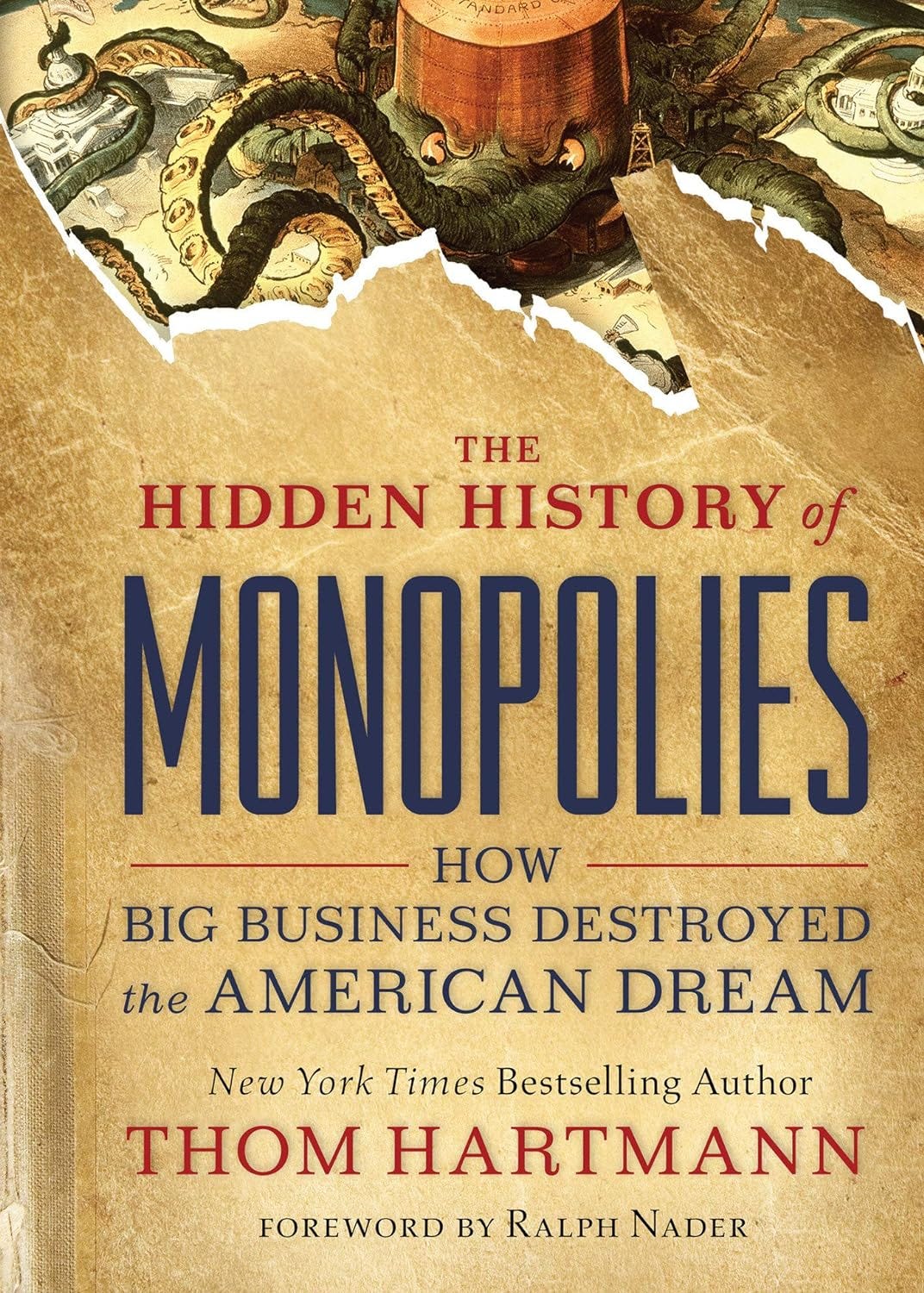Monopoly Kills: Competition, Creativity, and Americans
The Hidden History of Monopolies: How Big Business Destroyed the American Dream

Monopoly Kills: Competition, Creativity, and Americans
Left to its own logic, Big Business cares only about profit. With the rules that are currently in place, Big Business is encouraged to ruthlessly pursue profit at the expense of workers, communities, and the environment.
Just like in the game of Monopoly, this will eventually result in a situation where one person, or company, owns nearly everything (at least sector by sector). This happened with the railroads at the end of the 19th century, with the electric lines at the beginning of the 20th century, and with copper telephone lines in the mid-20th century in America under the Bell System, aka “Ma Bell.”
Each time, it has taken the heavy hand of government to break up these monopolies, because monopolies aren’t just bad for consumers, they’re also bad for the economy as a whole.
In the extreme case, when one company controls a set of goods or services, that company gets to set its prices at whatever level it wants. Beyond that, with no competition, a monopolist has no incentive to invest in research and development, and no incentive to improve its own infrastructure or to hire more people. This means that the company simply sucks money out of the economy to sit in corporate coffers, or to be paid out as extravagant bonus packages for its board of directors and executives, exacerbating income and wealth inequality.
Worse yet, without any competition, a monopolistic company’s main rival becomes the federal government, because the federal government is the only entity with enough power to break up or restrain the monopolistic company.
A monopolistic company will, therefore, inevitably try to co-opt the government through lobbying, campaign contributions, or outright bribes. Co-opting the government (buying out politicians and regulators) becomes the only way that the company can retain its monopoly and ensure that the profits keep rolling in, so that the bonuses and dividends can continue to be paid out.
In the real world, this happens even in situations where a true monopoly doesn’t exist.
Part 1 of this book shows (1) how the United States was founded in resistance to monopoly; (2) how the Founders discussed the different forms of monopoly, from economic to intellectual; and (3) why some monopolies—natural monopolies—are not only good, but essential as a bulwark against the privatization of the commons, and to protect the General Welfare.
Part 2 tells the story of (1) President Franklin Delano Roosevelt warning that fascism would come to America in the form of monopolists and vested capital; (2) how Robert Bork masterminded the dismantling of America’s antitrust enforcement; and (3) how Reagan’s deregulation further destroyed Main Street across America and stole Americans’ leisure time and work lives.
Part 3 (1) shows some key sectors where monopolies are limiting America’s economy and choking America’s middle class; (2) shows how monopoly stifles life on this planet beyond the realm of simple economic accounting; and (3) proposes solutions that range from political advocacy that each of us can take on as individuals to big (and necessary) systemic changes to avert economic, social, and climate catastrophe.
As America struggles to recover from the extraordinary economic incompetence of the Trump administration and its callous and erratic response to the coronavirus crisis, pretty much every thread and detail in this book acquires a new urgency and significance.
The lessons of history are clear, though: crises represent opportunities, both for monopolists and for those who would regulate them and return economic power to smaller and more local enterprises. This is as much true today as it was in the 1930s.
As the wheel of history continues to turn, the prescriptions in this book are more urgent now than at any other moment in our lifetimes.


